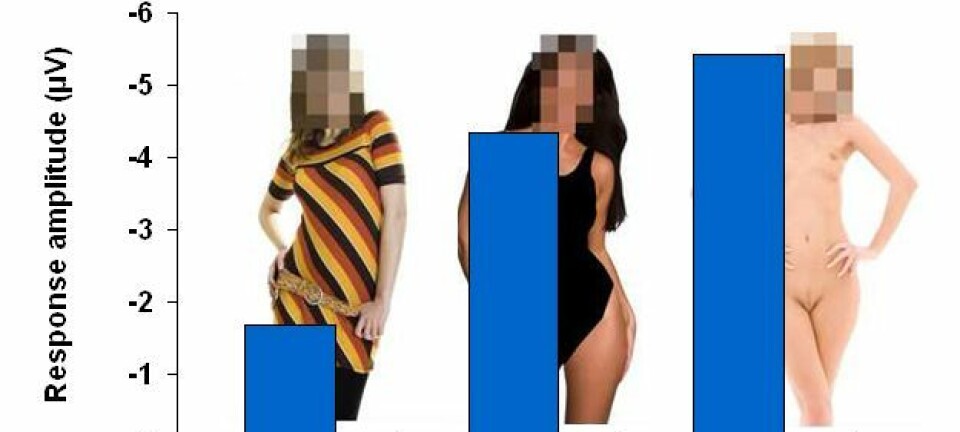
Unhealthy Danes have less and poorer sex
Scientists have found a link between unhealthy living and problems beneath the sheets. People should use the discovery to live healthier lives, they suggest
Everybody knows that a healthy lifestyle helps us live longer. Now it turns out that your sex life may also depend on your lifestyle.
Danish researchers from Statens Serum Institut (SSI), the University of Copenhagen and the National Institute of Public Health (NIPH) have just published two articles in the journal of Sexual Medicine, pointing to the correlation between unhealthy living, mental and physical wellbeing and poor sex or so sex at all.
"There is a strong connection," says SSI consultant Dr Morten Frisch, one of the researchers involved in the study.
Obesity and physical inactivity correlate with less sex
The study, involving 5,552 Danes aged between 16 and 97, shows that overweight or physically inactive people have less sex, a tendency that applies to men and women alike.
"A lack of sex is most pronounced in people with a weight problem. More people with a BMI of more than 30 with a large waist measurement say they have not had sex within the last year," Frisch explains.
The study also shows that the same applies to women who smoke.
"But is smoking to blame for the lack of sexual activity? Or is the tobacco a consequence of a lack of sex? In this kind of survey we cannot determine what is cause and what is effect. All we can do is to ascertain that there is a strong correlation," he says.
Erection problems due to smoking
According to Frisch, there are many reasons for pursuing a healthy lifestyle. Less sex is not the only thing associated with an unhealthy lifestyle. The study also found occurrences of sexual dysfunction beneath the sheets among people who smoked, consumed too much alcohol, smoked marijuana, took hard drugs, were physically inactive or overweight. And this was particularly pronounced in men.
"The fact that a clear correlation manifests itself between unhealthy living and people's sex life should be used in more effective prevention. As far smoking is concerned, the correlation between smoking and erection problems is well documented. It is presumably due to a hardening of the arteries (arteriosclerosis) and poor blood flow through the penis. Much greater use should be made of this knowledge in anti-smoking campaigns. Very few young people can relate to arteriosclerosis and future cancer risks, but having a good sex life is very important to them."
Smokers had more pronounced erectile problems, and the same applied to those who were obese. Obese people also had difficulty achieving orgasm.
Oddly enough, the researchers discovered that being underweight is not so good either. Underweight men experienced more erection problems and premature ejaculation than men of average weight.
Women stop having sex
Why is it mainly men that display a correlation between unhealthy lifestyle and sexual dysfunctions?
It may well be that women stop having sex if they feel things are not working out the way they should be. It is obviously more difficult to spot the sexual dysfunctions when the women are not having sex.
"When men have difficulty getting an erection or experience other sexual problems, many of them battle on regardless. But women who experience problems in their sex lives are more inclined to drop sex altogether," Frisch explains.
Men want to be in good physical shape - women crave mental wellbeing
For men and women there is a huge difference between which health factors can be linked to their poor sex lives.
Women with daily psychological problems are affected to a far greater extent by a poor sex life. For men, on the other hand, there is a strong correlation between physical health problems and sex problems.
"Self-reported health status is a strong indicator of whether or not a person functions in their sex life. But again, it is difficult to tell which came first: the poor state of health or the poor sex life."
"Our findings are interesting, but they are only an indication of some links between unhealthy lifestyle and sexual problems. There is a need for new studies which take the population's sexual health and well-being seriously. After all, 90 percent of the population say it is important to have a good sex life. There is a need for a more thorough study of the Danes' general and sexual health if we are to peg out guidelines for what people should avoid and what they should do if they want to maintain the ability to enjoy good sex," Dr Frisch concludes.
Read the article in Danish at videnskab.dk
Scientific links
- Associations between Physical and Mental Health Problems and Sexual Dysfunctions in Sexually Active Danes, DOI: 10.1111/j.1743-6109.2010.02145.x
- Associations of Unhealthy Lifestyle Factors with Sexual Inactivity and Sexual Dysfunctions in Denmark, DOI: 10.1111/j.1743-6109.2011.02291.x













